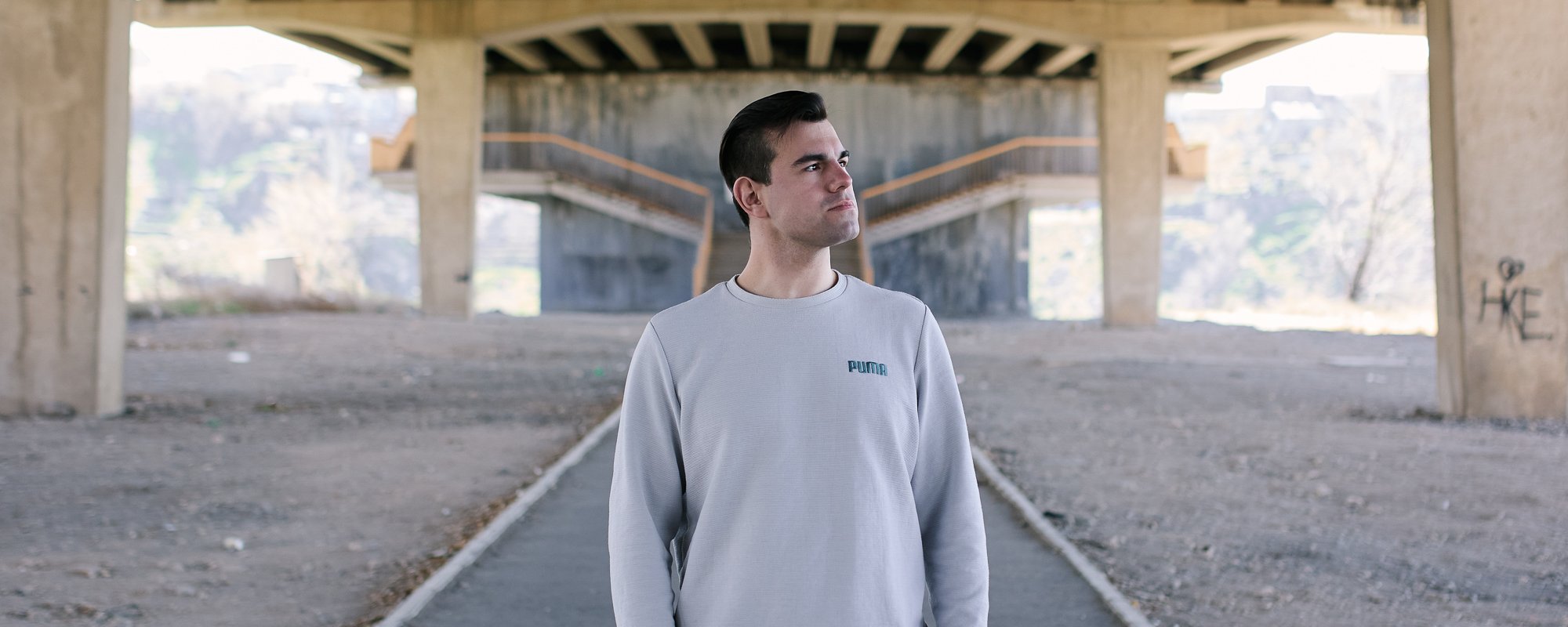Ruslan Kostylenkov, one of the defendants in the so-called «New Greatness Case», was released a year ago, on July 13. Until that, he served a sentence for creating an «extremist subgroup» (part 1 of article 282.1 of the Criminal Code). According to other defendants and their lawyers, the group was secretly infiltrated and curated by an undercover Russian intelligence officer. Ruslan was given the longest sentence, and spent five and a half years in prison. We had a conversation with Ruslan about his experiences during those years, discussing why he tried to get into solitary confinement on purpose and how he was offered military service in Ukraine in exchange for a pardon.
Translated by OVD-Info volunteers.
Localized by OVD-Info Fellow E. U.
Learn more about making a difference with our fellowships here.
On being shadowed and meetings at Bratislavskaya metro station
The key contextual detail for our case was the 2018 presidential election. People could sense it was going to be scripted and, and felt discontent preemptively. I was also among them. Agents of the FSB, too, were aware that people felt agitated. They infiltrated social circles where dissatisfaction was widespread; everything was bugged. Everyone was on standby; some readied to protest against injustice, and others planned to bust those who protested.
The first alarm bell came in March 2018. Anya Pavlikova reached out and told me that two weirdos showed up at her workplace, asking her supervisors questions. We met up, but our conversation was somewhat strange as Anya herself couldn’t grasp what was going on.
On March 11, a car with two guys in civilian clothes appeared near my house. I’m not a spy nor an intelligence agent, I’ve never worked in state structures, but I understood straight away I was under surveillance. It was comical how obvious they were — they literally just parked diagonally across multiple spots. Not a single one of my neighbours would do this. It stood out.
That day I left the house and passed the car as I headed to the store. I took a peek inside the car, and they looked right back at me. I believe their task was simply to watch my apartment building and take note of when I left, and which direction I headed in. They didn’t follow me. This car was parked outside the building for three days. On March 14, it got swapped for a dark SUV. People inside were different, but they parked in the same place.
The thought of running away didn’t cross my mind even though I knew I was being surveilled. I simply didn’t believe they could arrest me, so I wasn’t scared or fear shadowing. I knew that intelligence monitored groups of people who gathered to discuss politics. Had I known what was coming, I would have attempted to hide.
According to investigators, our group consolidated around Vyacheslav Maltsev back in November 2017. They assumed that we intended to mess some things up on the day of the election. But I’ve only ever come across Maltsev’s [videos] once in my life, and even then only for about twenty seconds.
Our last pre-arrest meeting with future defendants took place on March 4. Many people came to the room near Bratislavskaya metro station [a station in the South-East of Moscow], including the provocateur: Radu Zelinski. All we did was chat and go our separate ways. That day, Radu Zelinski told us he was not going to be attending the meeting after for personal reasons, supposedly he was needed somewhere else. Obviously, this was a lie. I suppose he had collected all the information that he needed by that time.
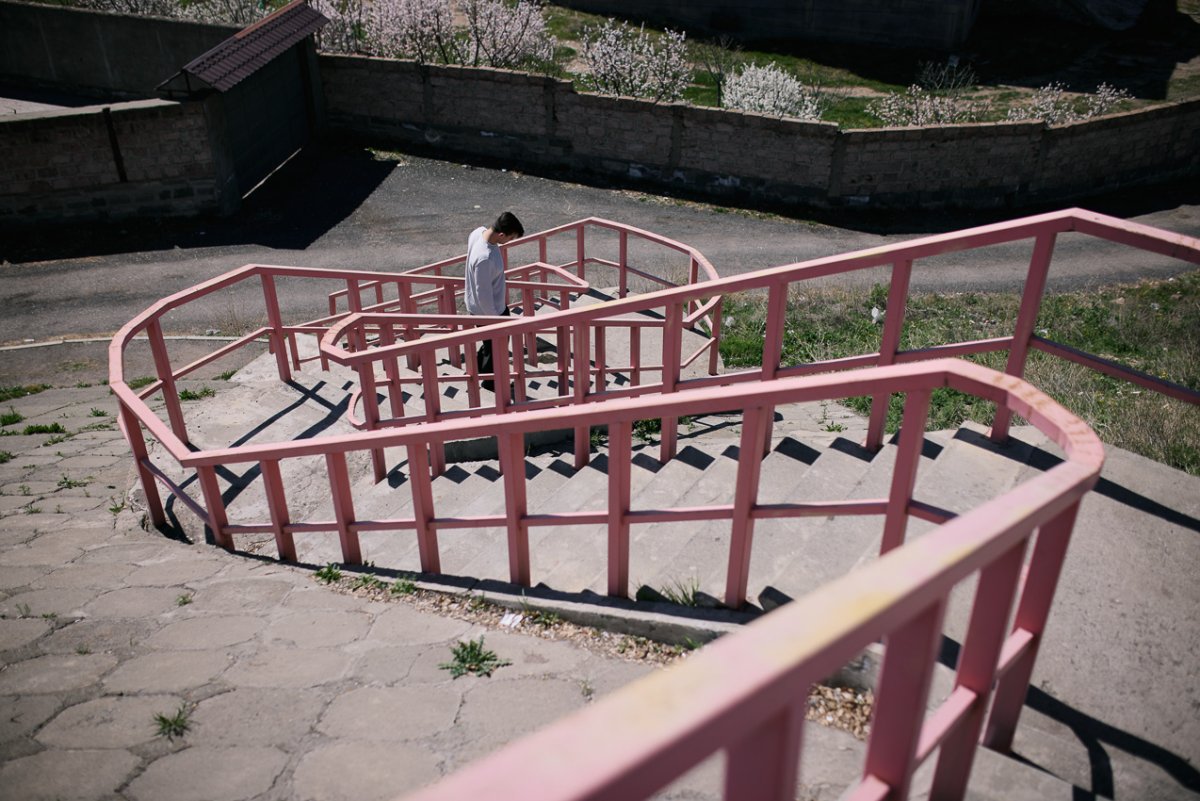
About a week after that, I met with Anya Pavlikova, Pyotr Karamzin and Vyacheslav Kryukov. Again, all we did was talk, go to a cafe and disperse. No one suspected that the attitude towards our group was becoming more and more heated or that arrests would follow. Personally, I didn’t feel anything of the sort, and the others probably couldn’t either. None of us felt guilty. Everyone simply envisioned themselves as people who were dissatisfied with the elections. The last of the affiliates I got to meet was Anya Pavlikova, who shared that two strange people had visited her work.
Detention and torture
It happened on my birthday — I turned 25 on March 15. I was home alone. At 10 am someone knocked on the door. I usually don’t ask who’s there, I just open the door and that’s what I did then, too. The Special Rapid Response Unit stormed in, fully equipped; there were about five of them. They knocked me on the floor and started kicking me. Then they cuffed my hands behind my back and sat me on a stool in the room.
The search and seizure began. I was sitting there in the room, not sure what was going on. Three men entered — two were wearing masks, one wasn’t. One of them stuffed a small bag with white powder behind the band of my underwear. Then they started asking me: «Ruslan, do you know what brings us here? Ruslan, what have you done?». I began to laugh — it was probably the nerves. It angered them.
Special Rapid Response Unit guys were holding me down, as two of the officers accused me of plotting to blow up the Ostankino Tower [television and radio tower in Moscow, and the tallest free-standing structure in Europe]. At some point they took the masks off and I saw their faces. In my mind, I named them Redhead and Tusk. They pounded me in the face, legs and stomach to beat the testimony that we were orchestrating the attack out of me. But they didn’t get much.
They proceeded to ask if I knew Vyacheslav Kryukov and Anya Pavlikova. Of course, I knew Vyacheslav and Anya, so I told them. So the officers cried out that we were a gang. Since I didn’t say what they wanted to hear, the same guy who planted drugs in my underwear put a plastic bag over my head, wrapped his hands around my neck and began to choke me.
Once they beat me up again, I was taken to the kitchen to be interrogated by an FSB officer. There is a video from my interrogation where I «confessed» to everything — that video was taken in my kitchen right after the beating. The beating went on even after the FSB officer left: Afterwards, the Special Rapid Response Unit men grabbed a meat hummer, bent me over and shoved the hummer’s handle deep in my anus.
Then they brought me into a room and brought in four witnesses. I looked at the documents: one witness was from Moscow, another from the region of Karachay-Cherkessia; other two also came from different cities. one girl and three guys. I suspect they were ‘pocket’ witnesses.
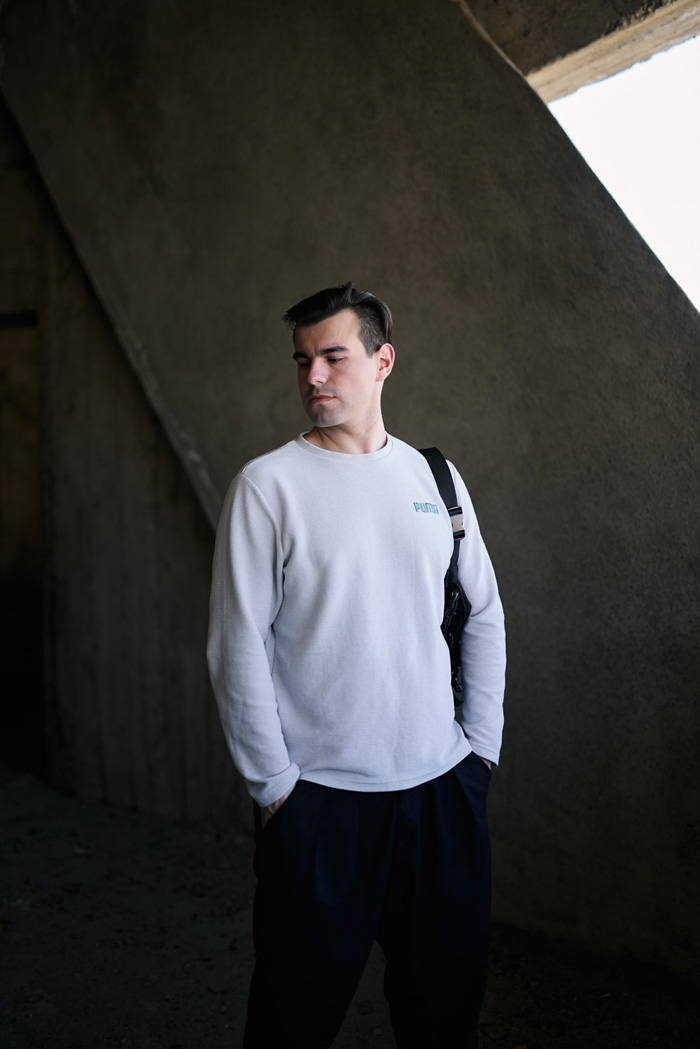
About one and a half hour later, they got me out of the apartment, pulled drugs out of my underpants, and shoved me into a car. I was laid down as we drove to the Investigative Committee, as I understood it, in the Western District of Moscow on Kutuzovsky Prospekt for another hour and a half. Other defendants from the «New Greatness» case sat there. They l arrested all of us.
As I was giving my testimony, I mentioned «Ruslan D.», who delivered us leaflets. Sitting next to me were Redhead and Tusk. They told me not to mention ‘Ruslan’ in my testimony. Back then, I already thought that this was quite bizarre. After that, a trial took place, where preventive measures were imposed on me, and I was sent to pre-trial detention.
We weren’t able to document all the consequences of the torture. When I arrived at the pre-trial detention centre, only punch marks were recorded. No surgeon was present, so the injuries below the waist were not taken into account.
«No one intended to set us free»
I’ve spent three years in the pre-trial detention centre № 3 «Presnya». The population consisted mainly of drug addicts and idlers, people who had run out of luck and got caught. I never faced any attacks from the administration or from fellow inmates. Everyone knew why I was there and said «Ruslan, you shouldn’t be here.» It was difficult, but I was supported by fellow activists and friends.
I received a lot of letters—from all over Russia and the world. I replied to each one, spending three hours a day on it every day of the week. We had a nice censor, and there were no delays or lost letters.
Until 2019, I was moved from one cell to another once every two months — I’m not sure what was the rationale for doing this. I even spent time in the segregation wing — this happened because of the «road»: it’s a kind of chain through which messages get passed from one cell to another. I was on standby on the «road» a lot, so I got told: «You go on like that, you’ll be sent to the segregation wing.» And indeed, that actually happened.
The segregation wing is no different from a standard cell, it just usually houses individuals involved in very serious crime, such as A.U.E. (vaguely defined subculture, which romanticises crime among youth — OVD-info) activities. It entails a building separated from other units. This cell did have its own shower, by the way. It also had its own intercom right by the door — you press a button, and a prison guard comes up. The conditions were close to being top-notch: you are observed meticulously yet the conditions you are in are more comfortable.
My segregation wing neighbours were the criminal kingpin, big fish, all of them: a mercenary who took part in wars all over the world; a Russian Army colonel, who used to sell tanks; and a guy who transported weapons from St. Petersburg to Moscow.
On one of the occasions, I was joined by an inmate convicted for bribery. He was facing up to 8 years in prison and, to avoid it, he bribed his investigator. They reclassified his case to fraud after which he got 2 years in prison instead.
The most challenging part of being in pre-trial detention is the uncertainty regarding the length of your forthcoming sentence. The period from March 2018 to August 2020 was particularly rough on me; I was on the verge all the time, unsettled, like in a limbo. In the end, on October 17, 2019, Slava [Vyacheslav Kryukov] and I slit our wrists in a courtroom to protest, because we could not understand what was going on: for example, why was Pavel Rebrovsky released, but we were still detained?
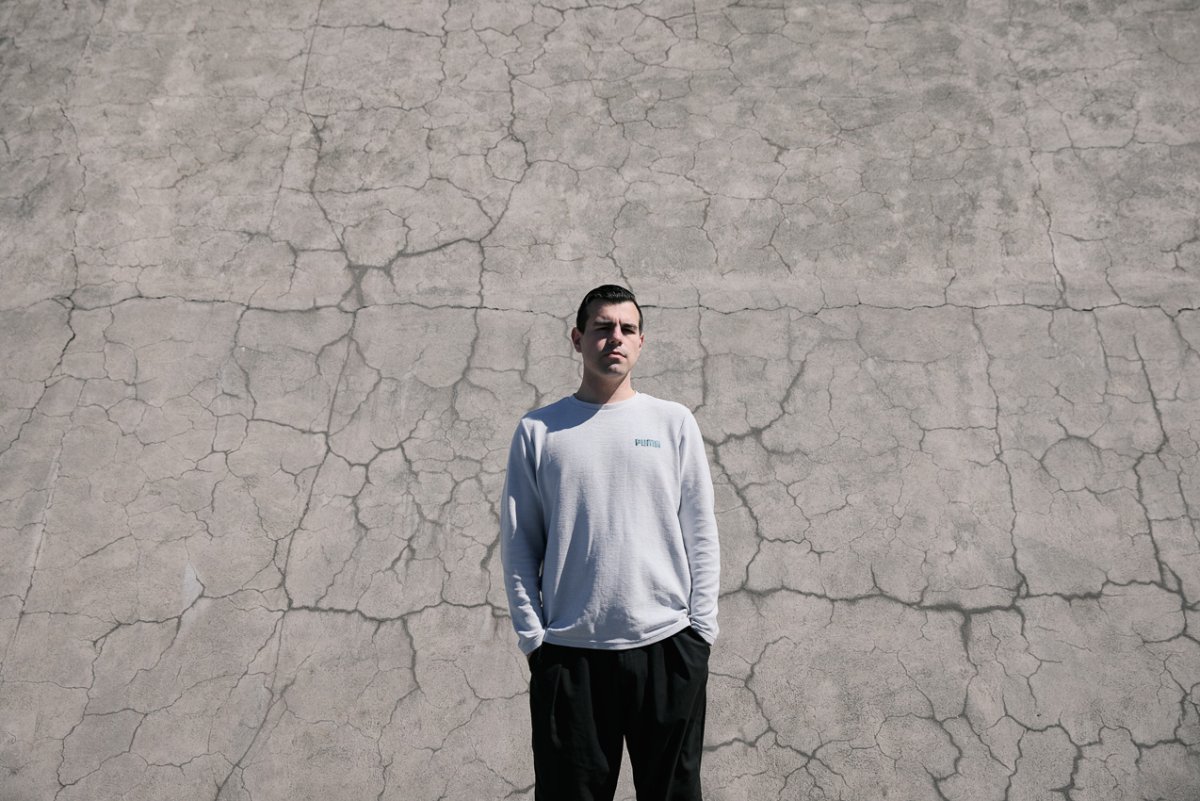
It wasn’t complicated to acquire the blades. Each of us was supplied our own razor: I snapped mine, took the blade out, broke it in half, rolled it up in paper and hid it in the seam of my t-shirt. I gave one half to Kryukov at the trial, and that’s how it was done. I cut myself in 3 places: my neck, wrist and face. The goal was to provoke a public outcry, to draw attention to our treatment, to this discrimination. Only to be told off by our lawyers — apparently, we were close to being released at the time we pulled this stunt. But I knew no one would let us go, so I told them to not take me for a fool.
We were hospitalised and got stitched up. After all of that I slept for 3 days straight, probably because of the blood loss. And in August 2020, the Lublin District Court of Moscow sentenced me to seven years in a general regime prison, counting the time spent in the pre-trial detention centre. As soon as the sentence was announced, albeit the most strenuous one possible, I felt lighter: I knew exactly when I were going to be set free.
Penal colony
I served my sentence in penal colony number 2, in the Kostroma region [West of Russia]. This colony has an illusion of freedom: unlike in a pre-trial detention centre, you are not stuck in one cell — there is a barracks, a canteen, a library, a church. With all that, however, you also get certain responsibilities that did not exist in the pre-trial detention centre. Labour is compulsory; so is going to the headcount three times a day. Participation in local competitions is only framed as voluntarily but in actuality is non-negotiable. So, although you are in the open air, and there are no bars over your head, in some ways, this time is more challenging.
I fell ill right after my arrival in the colony in 2021. I remember there was a certain Major Kuznetsov, who was overseeing the construction: prisoners erected buildings [inside the colony] and repaired them. We were tasked with unloading the construction materials after delivery. As soon as I started unloading cement and bricks, something jerked sharply in my back — it turned out to be a protrusion of the intervertebral discs, which became a hernia. My legs still hurt because of this; walking is hard. This lasted during the entire sentence since no one in the colony could take care of a hernia. I am just about to get the surgery now.
The relationships between prisoners and the administration in the colony are particular: there are «red» colonies, «regime» colonies, «black» colonies. My Kostroma colony used to be a «black» one where some levers of power belonged to the prisoners. Alcohol, drugs, and telephones were in free circulation. There was also lots of corruption: you could buy a parole or other benefits.
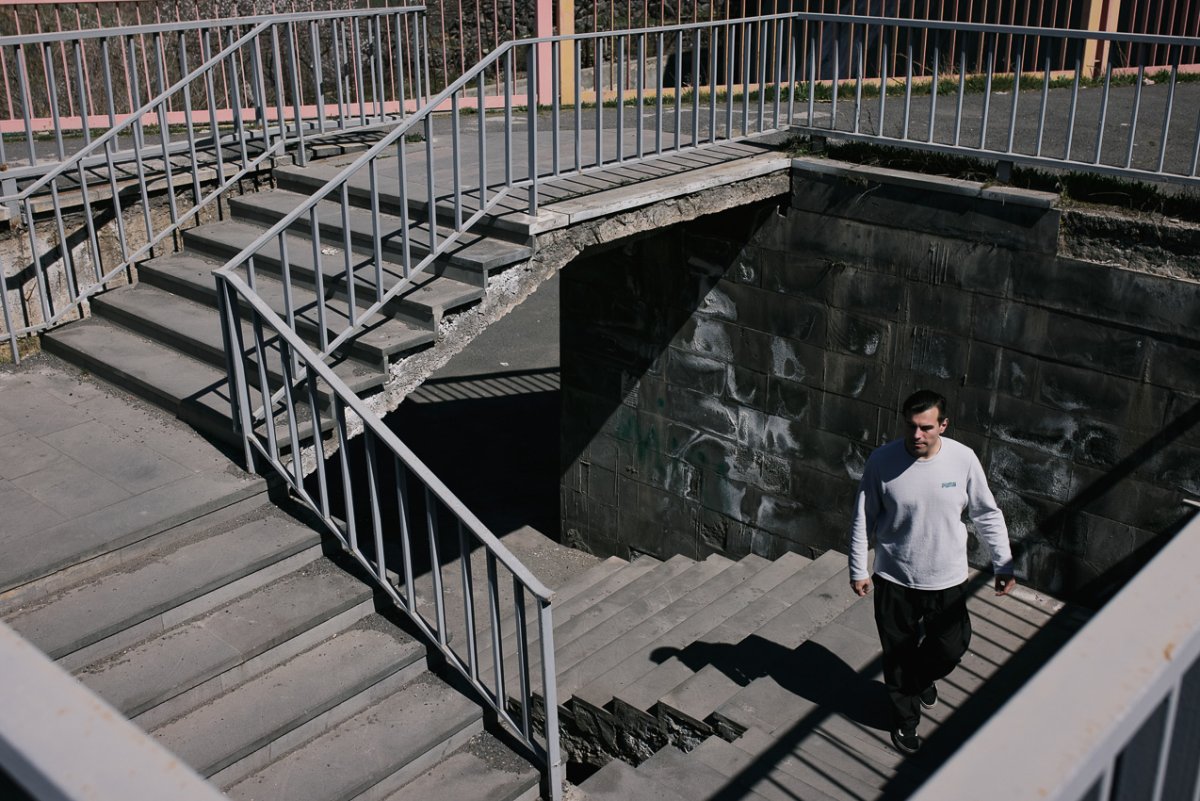
Just as I arrived there, the law on countering the A.U.E. system [a criminal organisation comprised mainly of young people subordinate to adult criminals] was passed, and the internal power balance shifted from the prisoners to the administrators. My attitude towards the AUE ideology is incredibly negative: no matter how much it is romanticised, it is extremist. Anyway, this law untied the hands of the authorities. The people in penal colonies and pre-trial detention centres who actively promoted the [A.U.E.] ideology were taken to regional single cell-type facilities where regime violators are kept in strict isolation — a ghetto for those who disagreed with the regime in the penal colonies.
Further on, the colony regimegot gradually and slyly altered. First, the administration said: «Guys, we are anticipating an inspection. Could you wear the uniform to avoid trouble for all of us?» We complied once, then twice, and then the guards started saying things like: «Why are you not wearing the uniform?». The same happened to making the bed: naturally, no one made their bed at first. Then we complied, just a couple of times. And then, suddenly, they exclaim: «Why haven’t you made your beds?» If you protested, you were sent to the punishment cell. This way, within a year or two, a ‘black’ colony became regimented.
Actually, when I arrived, drugs and alcohol were long gone from that prison. Every morning, you had to get up and go to work. If you didn’t — you were sent to the punishment cell; if you weren’t present at the headcount — you were sent to the punishment cell; didn’t participate in any events — the punishment cell; left the top button on your robe undone — the seg; failed to put on the badge — the punishment cell.
Despite all this, the caste system was retained: you would get labelled as a ‘man’, a ‘downgraded’, or a ‘goat’. The downgraded could only work as cleaners, while we, the normals, had the right to take up a sewing job, do internal repairs or work in the canteen. I worked in a vegetable station where I peeled potatoes. This was the best position. I had to work 7 days a week, no weekends, but had an advantage: I got up at 6 AM, went to work right away, peeled the vegetables for the entire prison population, and was free as early as 10 AM. I even had my own nook, which the guards would never enter.
After work, I spent time in the canteen, reading a book or responding to letters, or talking to other inmates who came to see me. When the war started, I had to leave this job.
The war begins
I found out the news from personal letters. The censor let everything pass except for «Prigozhin’s march». I also had a subscription for «Sobesednik» and «Novaya Gazeta» (Russian independent newspapers — OVD-Info). People would queue up to borrow the papers from me — it turns out, the prisoners really love them. It would almost come to a fight on some occasions; they just snatched the newspapers away in a frenzy — both at the pre-trial detention centre and in the colony. But about «Novaya» they said this: «Ruslan, the newspaper is very interesting, but it sours the mood».
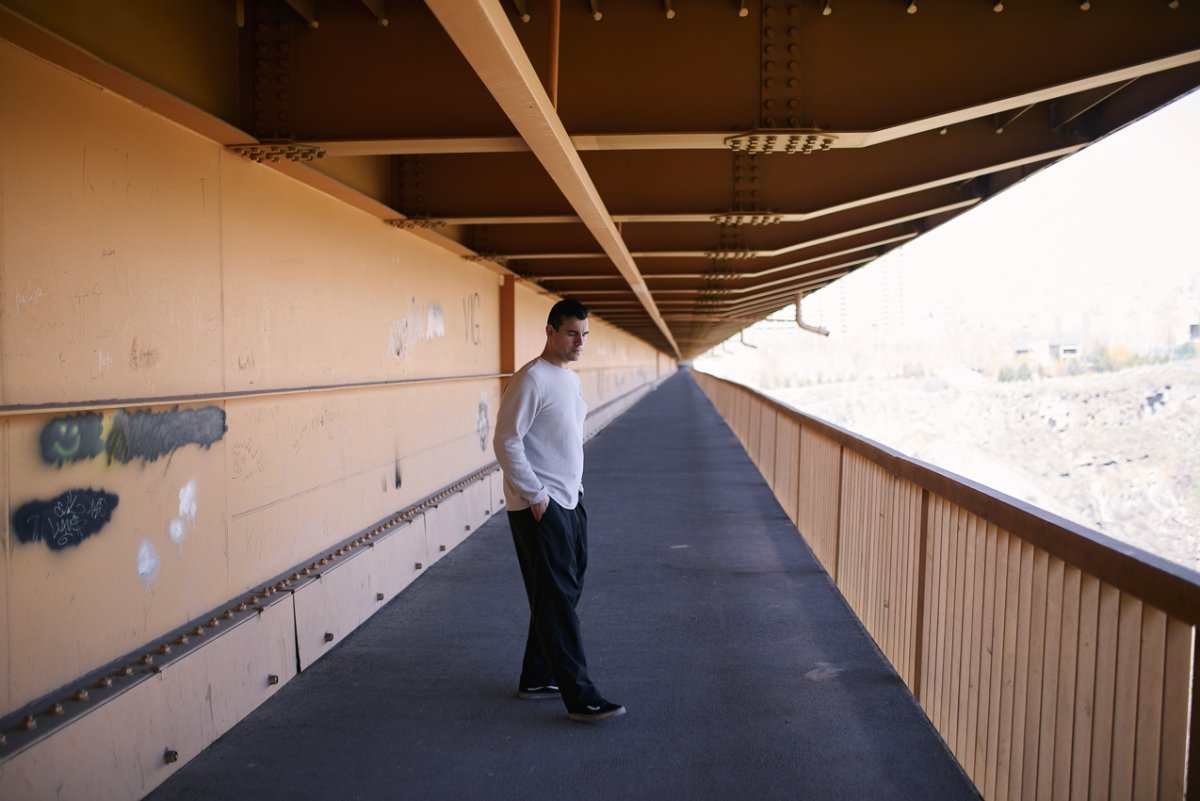
On the morning of February 24, I went to my usual «corn corner», the vegetable workshop. Another inmate, Sergey Nikolaevich, 60 years old, came to me saying «Ruslan, are you aware of what’s happening? The war with Ukraine has begun.» I couldn’t believe it and went to check it on the TV — we had a «character correction» room in each barrack: a bunch of benches where guys watched «Muz-TV» [a TV Channel modelled after MTV, on air since 1996]. That day they were watching the news.
I felt like I was in an Orwellian book, watching «Two Minutes of Hate» from the sidelines. When they were showing a news story about Ukraine, all the inmates were yelling: «Khokhly! That’s right! Screw them!» I didn’t know these things actually happened. The inmates reacted very actively and very positively.
Then a man from the administration approached me and said off-record: «Ruslan, your case is political, you can expect provocations» And provocations did happen. One convict came up to me saying he was being released in March. He wanted to know how to volunteer to serve in Ukraine.
Before the war, patriotic education [in the colony] was a prerogative of the «Russia 24» [TV] channel. After that, educational talks were conducted to the extent of one’s education, but they were awkward. After this, recruiters from the PMC «Wagner» visited the colony too. About 250 people in my colony were ready to go to the front from the very beginning, back in March 2022.
I decided that I could no longer live on in the barrack with everyone because they might plant something on me or provoke me, or record some of my conversations. I submitted a refusal to work; — for that, they put you in solitary confinement as punishment. So, in July 2022, I ended up in solitary confinement and spent a year there.
Punishment Cell (SHIZO)
The cell is around nine square meters or five by five steps. In it, all things are welded to the floor. There is a table and a bench, a window forty by forty centimetres. With bars, obviously. The cell has a small cubicle with a toilet and a sink. «Best of all» is a bed attached to the wall. They lift it up at five in the morning and bring it down at nine in the evening.
Winter was freezing in there. There was heating, but insufficient. The regular clothes we wore did not protect anything. Sometimes, we cooperated with guys from other punishment cells; we blocked and covered the video cameras in the wall with jackets from our prison uniforms, or turned them [the cameras] away and tore them off completely, saying that if they did not provide us with warm jackets, we would continue to sabotage the cameras. These video cameras are protected with steel anti-vandal bars, but you could put a hand through them. It was a small riot. After that, warm jackets were provided to us, and it became bearable, but the hands were still freezing. In January and February 2023, the temperature inside was certainly below ten degrees Celsius. In the summer, there were hordes of mosquitoes. Store trips, personal visits, calls and packages — none of this was permitted. Letters, in theory, were forbidden too, but we had a kind of chill administration who permitted them.
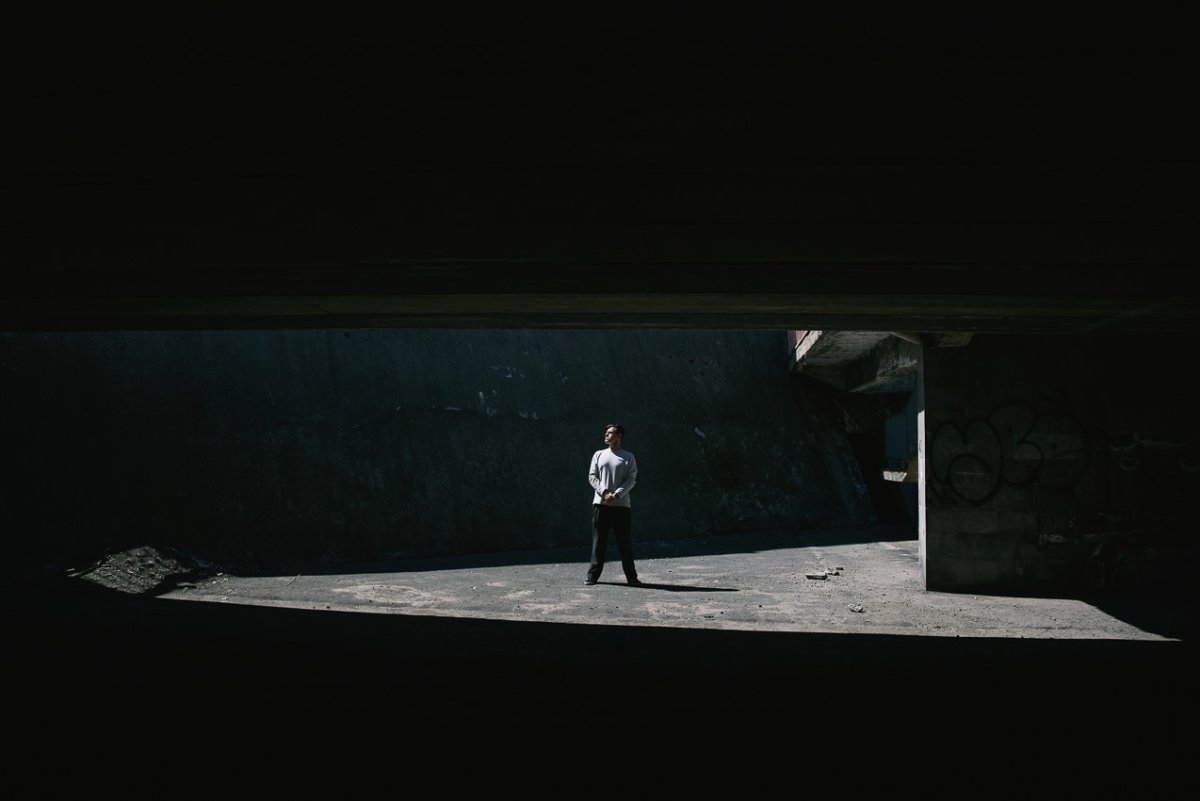
One day, I felt sick: I was shaking all over and had a headache. I called a doctor, and asked for medicine and permission to unfasten the bed to lie down. Her answer was «There are no pills, you are not sick with anything, suck it up!» And then she left. I almost died there. I laid down on the table, did whatever I could. The medical treatment is zero to none there.
Then October came. I was brought to the headquarters. There were two people in civilian clothes sitting there. They asked if I had a military service card and a military specialisation, if I knew how to use a weapon. I am a military medic, and I know how to use a weapon. Next was the question: «Would you like to participate in the „special military operation“?» My answer was, «Gentlemen, I don’t want to participate for ideological reasons.» Later, the «balander», who was delivering my food and updated me on what was going on in the barracks, said that 70 people from my colony signed up and left for the war.
Then a man who was leaving for the war in a week was put in a сell next to mine. The curious thing is that he was due to be released in a month. I tried to understand his motivation for this [military service]. He said: «I don’t care one bit about this „special military operation“. But I have no relatives or friends, no one would hire me, and I don’t know what to do with my life, so I’ll try my luck out there.»
In our penal colony, rank-and-file prison staff were rather negligent about the punishment cell inmates. They didn’t care that we talked to each other. We conversed during our walks or through the cell walls; although we were in solitary, the cells were still close to one another. If we needed to pass a message to the prison barrack, we did it through the «balander».
After the release
I was discharged on 13th of July 2023. Immediately after the release, I went to the criminal executive inspection to check-in. Then I went to a lake and I met up with my friends. Everyone was telling me that after a year in solitary I became a «zatupok». I myself felt that I’ve become a bit slow-witted.
Already in 2019 I was added to the official list of «terrorists and extremists» by Russian authorities, disabling me from conducting any property deals because of this. De facto I am still allowed to own a bank card, but whenever you go to a bank they deny you everything because of this status. I am not allowed to own a travel passport, go out at night or leave my district.
I tried to get a job after the release, as a photographer, video editor, handyman; I applied for work in a shopping mall, print shop, and local alcohol store chain. No one cared about my criminal record, but once I mentioned I had restrictions on owning a bank card they all refused to hire me. On October 12, I left Russia.
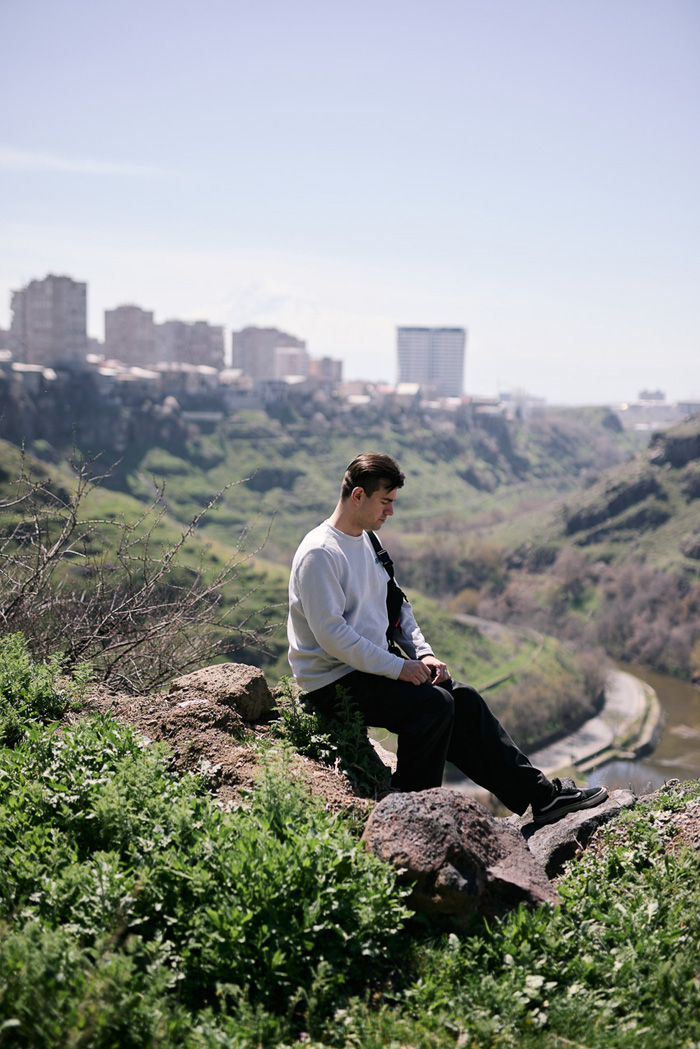
I really hope to return one day: all that is mine is here. But, frankly, reading the news makes me convinced that I did everything right. The political climate became sterner. I suppose if my case was in the proceedings now rather than then, I wouldn’t leave the prison at all.
Interview recorded by Marina-Maya Govzman



